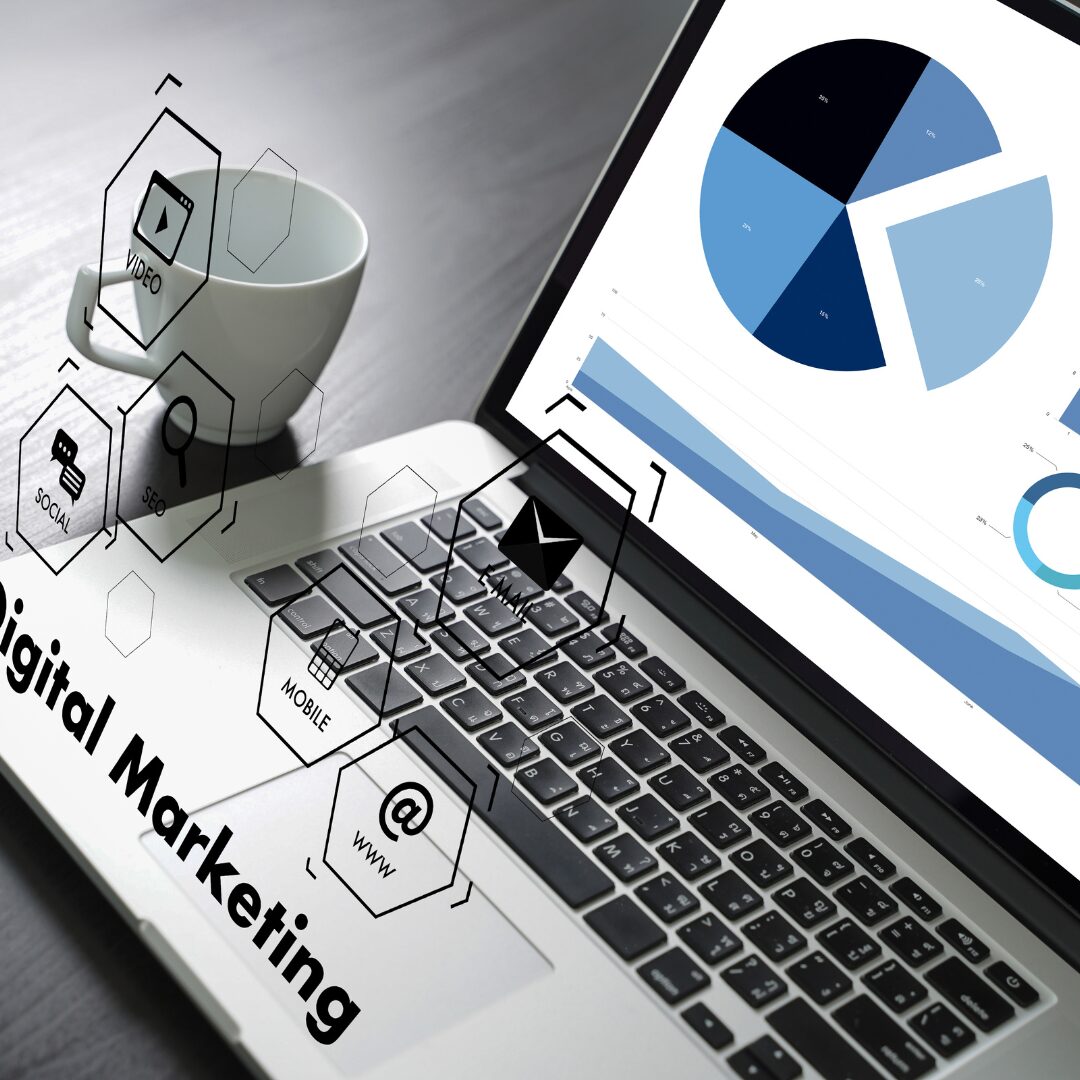Becoming a digital marketer might feel like trying to assemble IKEA furniture without the instructions—but don’t worry, it’s totally doable! Here are five simple strategies to help beginners get started, build a strong online presence, and actually see results (without pulling your hair out). Top 5 Digital Marketing Strategies for Beginners:
1. Social Media Marketing

Social media platforms like Instagram, LinkedIn, Facebook, and Twitter provide excellent opportunities to connect with your audience, build your brand, and drive engagement.Why It’s Important: Social media marketing allows for direct communication with your audience and provides valuable insights into their preferences and behaviors.
How to Start:
- Choose the platforms most relevant to your audience. For example, LinkedIn works well for B2B companies, while Instagram is ideal for visually-driven brands.
- Post consistently with a mix of promotional, educational, and engaging content.
- Use tools like Hootsuite or Buffer to schedule posts and manage multiple platforms.
Pro Tip: Utilize paid advertising options to target specific demographics and increase reach.
Resources:
Sprout Social Resources – Social media strategy tips.
Hootsuite Blog – Learn how to manage social media effectively.
Search Engine Optimization (SEO)
Search Engine Optimization (SEO) is the practice of optimizing your website and content to rank higher in search engine results. It ensures that your target audience can find you online.
Why It’s Important: A strong SEO strategy improves organic traffic and increases your online visibility.
How to Start:
- Research relevant keywords using tools like Google Keyword Planner or Ahrefs.
- Optimize your website’s metadata, including title tags, meta descriptions, and headers.
- Focus on creating high-quality, keyword-rich content.
- Ensure your website is mobile-friendly and loads quickly.
Pro Tip: Regularly update your content to maintain relevance and improve rankings.
Resources:
Email Marketing
Email marketing is one of the most cost-effective ways to communicate directly with your audience and nurture leads.
Why It’s Important: Email campaigns help you build long-term relationships with your audience and drive conversions.
How to Start:
- Use tools like Mailchimp, ConvertKit, or Constant Contact to design and send professional-looking emails.
- Segment your email list based on user behavior, demographics, or preferences.
- Create engaging subject lines and include clear calls-to-action (CTAs).
Pro Tip: Automate email sequences to save time and deliver timely messages, such as welcome emails or cart abandonment reminders.
Resources:
Content Marketing
Content marketing revolves around creating and distributing valuable, high-quality content to attract and engage your target audience.
Why It’s Important: High-quality content builds trust and establishes your brand as an authority in your industry.
How to Start:
- Focus on blogs, videos, infographics, and social media posts that address your audience’s pain points.
- Share your content across multiple channels to maximize reach.
- Collaborate with influencers or industry leaders to expand your audience.
Pro Tip: Create a content calendar to plan and organize your content strategy effectively.
Resources:
- Content Marketing Institute – Guides, strategies, and case studies.
- Canva Design School – Learn to create engaging visuals.
Analytics
Understanding the performance of your marketing efforts is crucial for refining strategies and maximizing results.
Why It’s Important: Analytics tools help you identify what’s working and where to improve.
How to Start:
- Use Google Analytics to track website traffic, user behavior, and conversion rates.
- Monitor social media metrics, such as engagement rates and reach, using native analytics tools or third-party platforms.
- Set clear goals and KPIs to measure success.
Pro Tip: Regularly review and analyze data to make informed decisions and optimize campaigns.
Resources:
- Google Analytics Academy – Free training for beginners.
- HubSpot Analytics Tools
Wrapping Up
Digital marketing doesn’t have to be overwhelming. By starting with these foundational strategies—social media marketing, SEO, email marketing, content marketing, and analytics—you can build a strong online presence and grow your business effectively. The key is to stay consistent, learn from your data, and adapt as needed. With time and practice, you’ll be well on your way to mastering the art of digital marketing!
PariPixel Studio – Turning ideas into visuals that captivate!




One Response